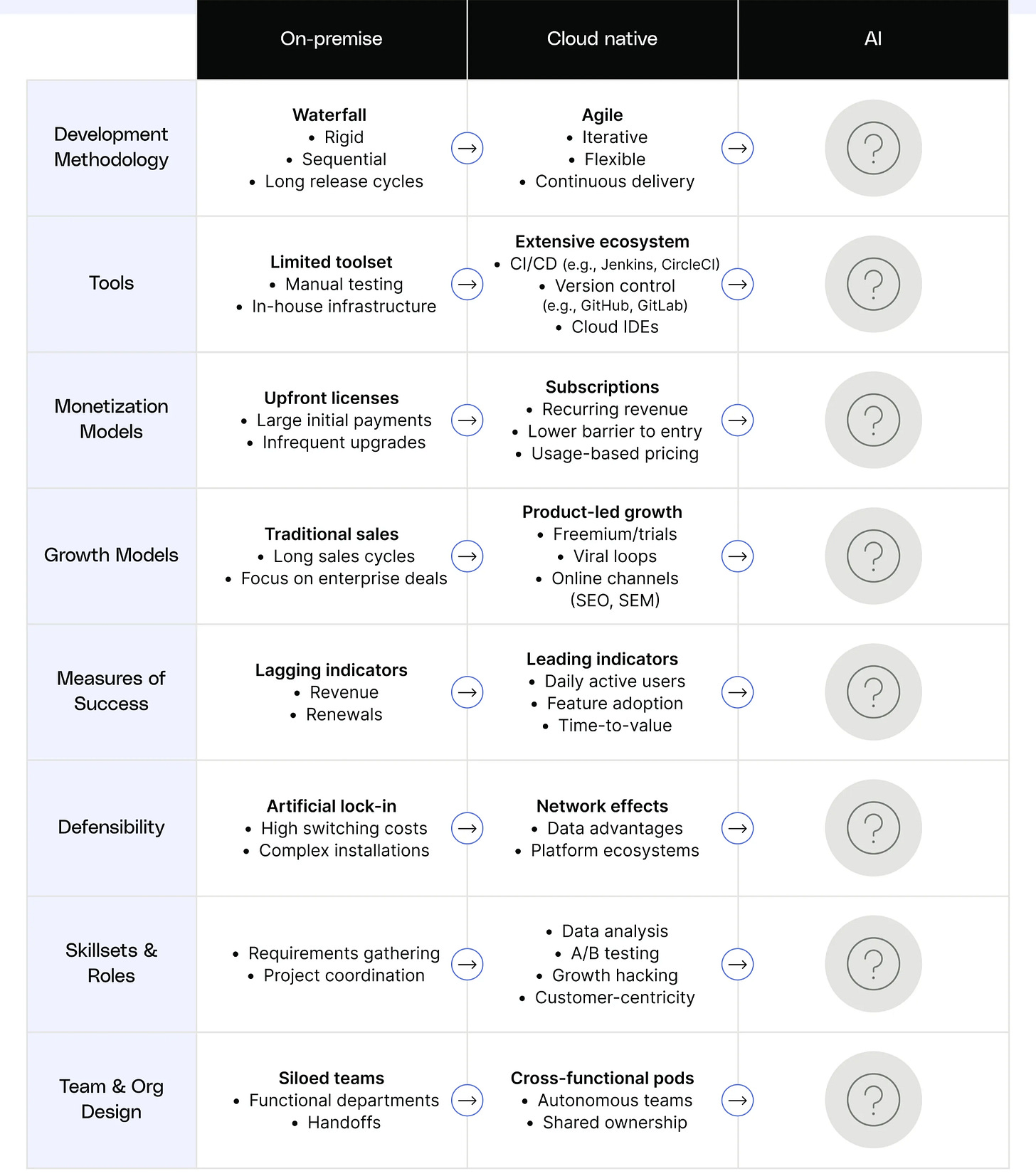Lean into the wave
AI, cloud, transformation, startups and product teams
The other day I was reading this post from Brian Balfour (Founder/CEO of Reforge, ex-VP Growth at HubSpot) about how AI will, or could, change the way software and product teams operate in the future.
The TLDR of the whole post though is the below snippet.
“Every decade or so, a technological shift comes along that doesn't just change how we build products—it rewrites the entire playbook. The shift from on-premise to cloud wasn't merely a hosting change; it revolutionized every aspect of how we build, ship, and grow software products. AI represents a similar inflection point”. - Brian Balfour.
To illustrate his point, Brian looks back in time to the shift from on-premise to cloud, which really isn’t that long ago. For reference, I worked at a public software company less than a decade ago, who still had on-prem servers on-site and visual basic code running in production with customers.
It’s easy to forget just how much has changed in the last 10-15 years for product and engineering teams inside SaaS companies.
For example, before the big “consumerisation of enterprise” movement, lets call it pre-2010, the below concepts weren’t mainstream concepts in startup and SaaS land.
Product led growth (first coined in 2016 by OpenView’s Blake Bartlett)
Growth hacking (Sean Ellis first coined the term in 2010)
CI/CD-as-a-service (mainstreamed in 2011 when Jenkins and TravisCI launched)
A/B testing (Optimizely who popularised it for SaaS, was founded in 2010)
We take these tools, ideas and concepts for granted today. But for the most part, they all emerged in the last 10-15 years.
The obvious next question to ask is, what will change in the AI-era?
What new “thing” will we look back on in time and wonder how we ever operated without it?
This is a psychologically difficult set of questions to ask, to be sure. There’s a very popular type of post online at the moment, popular amongst on-the-fence-AI-skeptics that goes a little something like:
“Knowing what to ship will be more important than shipping fast”
“Taste and judgement will be the key moats”
“AI is valuable and great… but”
Part of me thinks, that’s true and makes sense, but another part thinks… it’s just cope.
Of course, insight and strategy will continue to be competitive advantages. Of course, shipping crap product into the abyss at hyper-speed won’t get you anywhere good. These are not new ideas or principles.
But I can’t help but feel these takes act as a psychological defence mechanism. A comfort blanket that people use to tell themselves that they’ll be totally fine, they’re still needed, their jobs aren’t at risk, they still provide value, they don’t really need to learn anything new.
But, as Brian points out in his post, the last big shift, from on-prem to the cloud bought amount tremendous change, not least in terms of roles, responsibilities and the (new) skills that accrued value inside a software and product team.
It would be extremely naive to believe the next shift won’t be as, if not more disruptive.
I think everyone in tech should be eyes wide open to what’s going on. Not paranoid, not hysterical, not overly hyperbolic, but aware of what’s changing.
I think the right attitude to take into any major transformational shift is:
Assume almost everything will change (processes, tools, methodologies).
Lots of existing skills are transferable (experience, instinct, judgement).
But you need to learn and re-learn a tonne to capitalise on the next wave.
Surfs up!



